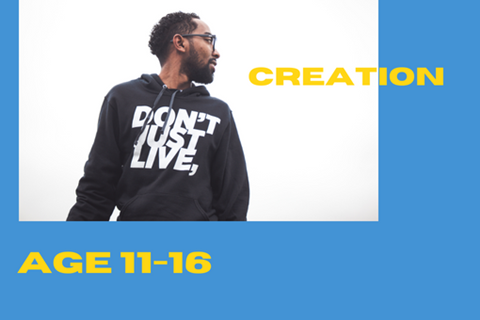
Gathering time
10 minutes
You will need: refreshments; a comfortable place to sit and chat
As the young people arrive, serve them the refreshments you have provided. Try to have something a bit more interesting than biscuits and squash - is there someone in your congregation who could make cake? Do you have the facilities to make toast and tea? As you eat and drink together, chat about the young people’s lives - do they have anything to share? Any triumphs? Any disasters?! Share stories from your life too, if appropriate.
The meaning of poetry
5 minutes
You will need: each line of the poetry below written on A4 paper
Stick the lines of poetry on the wall. Ask the young people to look at the poetry and work out what it is trying to say. Bring the group together and discuss what they think each line means. Allow any subjective opinions. Poetry is as much for the reader as the author.
“To be or not to be: that is the question.” Is it better to live and face troubles or die and be rid of them?
“Tis better to have loved and lost than never to have loved at all.” Even love that is painfully lost is better than no love at all.
“Tread softly because you tread on my dreams.” Be careful, this is all that I have.
“Two roads diverged in a wood, and I - I took the road less travelled by.” Choose an unconventional path in life, or make an unusual choice.
“Water, water, everywhere, nor any drop to drink.” The crew of a ship suffer extreme thirst, surrounded by an ocean of ‘undrinkable’ water.
“Season of mists and mellow fruitfulness.” Imagery of autumn.
“I wandered lonely as a cloud.” Wordsworth talks about walking alone, but it isn’t negative, as the rest of the poem shows the joy found in nature.
Bible exploration (part one)
5 minutes
You will need: reflective music; these sections of the Bible each printed on a different piece of paper: day one - Genesis 1:1-5, day two - Genesis 1:6-8, day three - Genesis 1:9-13, day four - Genesis 1:14-19, day five - Genesis 1:20-23, day six - Genesis 1:24-31, day seven - Genesis 2:1-4
Lay out the Bible passages in front of the group, or stick them to the wall. Start your music and ask the young people to read them through, one at a time. Start with day one and work your way through the week.
Chatting together (part one)
5 minutes
Ask the following questions. There are no right or wrong answers. Try not to see this as a question and answer session but a discussion and meditation around the questions:
- What marks a day?
- How is a day calculated?
- What is the connection between day one and day four?
- What is the connection between day two and day five?
- What is the connection between day three and day six?
- Why is day seven included here?
Try not to contradict what they say, but encourage the group to think freely. If they seem to be straying off topic, gently coax them back. Add any other questions that you feel are relevant to your community’s theological position.
Bible exploration (part two)
5 minutes
Explain that the majority of scientists, who study the origins of all things, believe everything began at, and from, a single point. From this single point (singularity) everything expanded, stars were formed, planets around them and life began on the Earth and now we have animals and humans. This is known as the Big Bang theory. The Big Bang theory is not a poem. It is not poetic. It is a reasoned, scientific argument.
Genesis 1 is written as a poem. It is poetic. Genesis 1 is not a reasoned, scientific argument. Rather it shows us different things about God, who he is and why he created the world. You could see the Big Bang as the ‘how’ and Genesis 1 as the ‘why’.
Read through the Bible story again, using the print-outs from earlier. This time, however, read the story out loud. Ask the group to think about the ‘why’, rather than the ‘how’ as they listen to the account once more.
Chatting together (part two)
5 minutes
Go on to discuss these questions together, making sure everyone has the chance to contribute:
- Why do you think God created the world?
- What does Genesis 1 tell you about God?
- What does this story tell us about humans - about us?
- Why did the author of Genesis 1 write a creation account in poetic form?
Creative response
20 minutes
You will need: materials for your chosen artistic medium
Prompted by the seven-day account in Genesis 1, paint, draw, collage or sing your interpretation of the events. Let the young people’s imagination explore the poetic beauty of creation and everything contained within. You could point the group to the book of Psalms, for some ideas, or read Psalm 104 as they work. Chat together about creation as you yourselves create. Share the work and see how each of us interpret this awesome event.
Prayer
5 minutes
Genesis 1 reveals a seven-step creative process. Explain to the group that they will now have a seven-step prayer process. Taking each ‘day’ in reverse, thank God. Ask for a volunteer for each day. If your group is small some may need to do more than one day. You can also include yourself.
Give each volunteer a day. Have the volunteers silently read the Bible passages that were printed earlier. When that is done, pray. The first person to pray takes day seven and thanks God for something relating to that day. Next is day six and so on to day one. Finish by saying “Amen” together.
Supporting documents
Click link to download and view these files747333.pdf
PDF, Size 0.37 mb











































